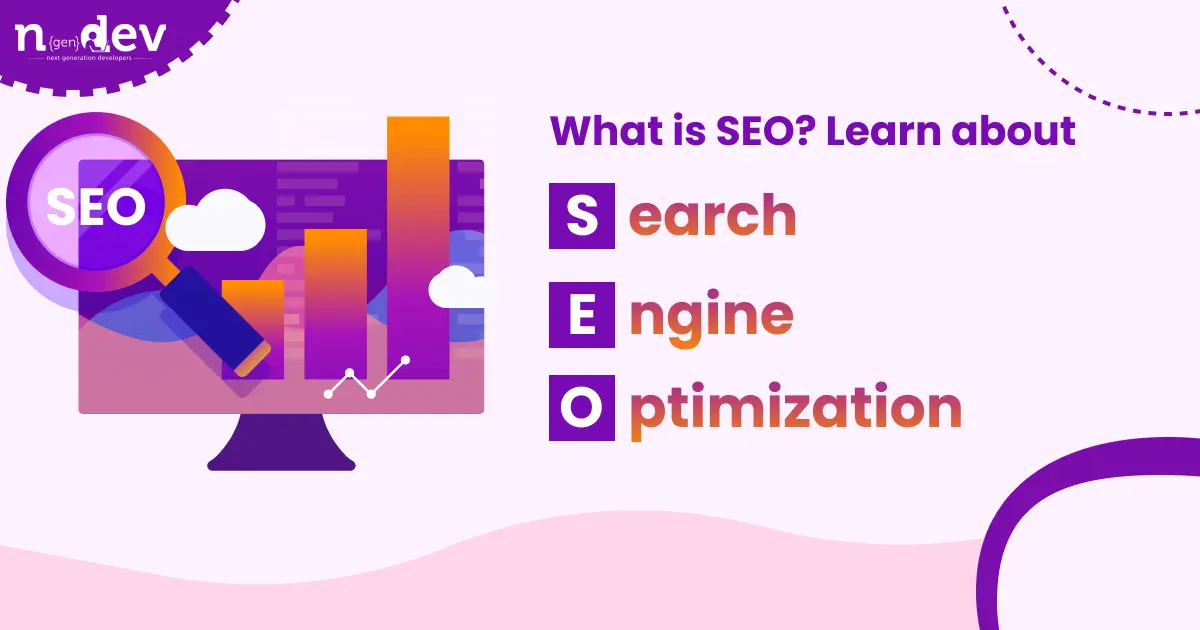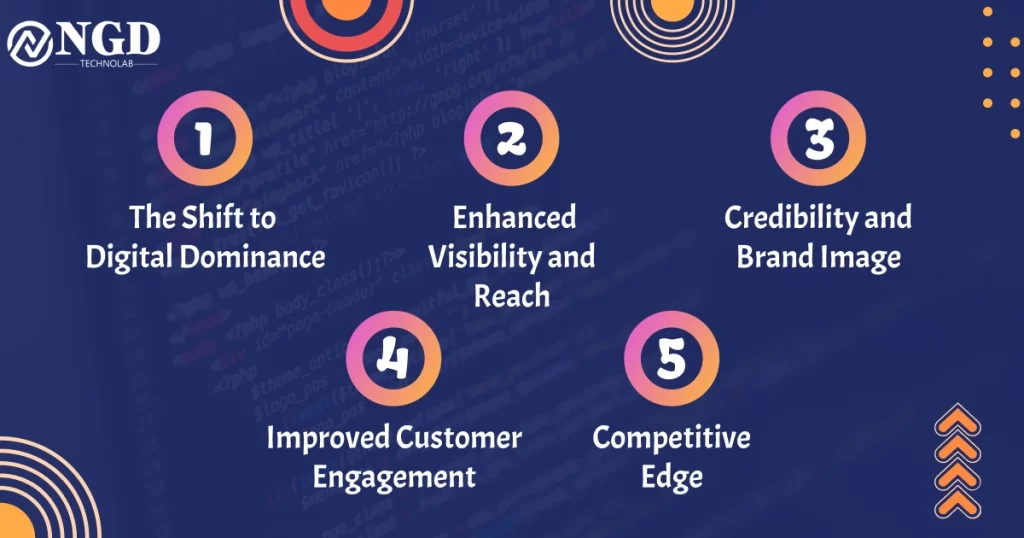What is SEO? Learn about Search Engine Optimization
-
Harshid Patel

Search engines like Google, Bing, and Yahoo are the gatekeepers of the internet. When users seek information, products, or services, they turn to these search engines. The goal of SEO is to ensure that your website ranks prominently in search engine results, thereby increasing your online visibility and driving organic traffic.
What is SEO?
Search Engine Optimization, or SEO, is the process of optimizing your website and its content to rank higher on search engine result pages (SERPs). The primary goal is to increase organic (non-paid) traffic to your website, making it more visible to potential visitors.
SEO involves a combination of techniques, strategies, and best practices that search engines like Google use to determine which websites deserve top spots for specific search queries. Understanding the basics of how search engines work is crucial to mastering SEO.
The Importance of SEO
In today’s digital landscape, the importance of SEO cannot be overstated. It is the key to unlocking online success. Without proper optimization, your website might remain buried in the depths of search engine rankings, virtually invisible to your target audience.
How SEO Works
Imagine SEO as a librarian who organizes books in a library. The librarian categorizes books (webpages) based on content and relevance. When a student (user) enters the library (search engine) and asks a question (search query), the librarian quickly retrieves the most relevant books.
In this analogy, the librarian represents the search engine algorithm, the books are webpages, and the students are users seeking information. SEO is the process of helping the librarian find your webpage and present it to students when they ask questions related to your content.
Fun Fact: Did you know that Google receives over 5.6 billion searches per day
SEO vs. SEM: What's the Difference?
Often, people confuse SEO with SEM (Search Engine Marketing). While both are related to search engines, they serve different purposes. SEO is about optimizing your website to rank organically, while SEM involves paid advertising, such as Google Ads.
The Evolution of Search Engines
Search engines have come a long way since their inception. Understanding their evolution helps us appreciate the complexity of SEO. In the early days, search engines relied on simple algorithms, but today, they use advanced machine learning and AI to deliver more relevant results.
On-Page SEO Factors:
Keyword research is the foundation of SEO. It involves identifying the keywords and phrases that your target audience is searching for and incorporating them strategically into your content.
Creating high-quality, informative, and engaging content that aligns with your target keywords is essential for on-page SEO. This helps search engines understand your website’s relevance to user queries.
Meta tags and descriptions provide search engines and users with essential information about your web pages. Optimizing these elements can improve click-through rates and SEO performance.
A well-structured URL can make it easier for search engines and users to understand the content of a web page. Clean and concise URLs are favored by search engines.
Off-Page SEO Factors:
Backlinks are links from other websites to yours. High-quality backlinks can significantly impact your website’s authority and ranking. Building a robust backlink profile is crucial.
While social media itself doesn’t directly impact SEO, it can drive traffic and create brand awareness, indirectly influencing your site’s rankings.
Maintaining a positive online reputation is crucial for SEO. Customer reviews, ratings, and mentions can influence search engine rankings.
Collaborating with other websites through guest posting and outreach can help you build relationships and earn backlinks, further enhancing your SEO.
Technical SEO:
A fast-loading website not only enhances user experience but is also favored by search engines. Compressing images and improving server performance can help.
Security is a ranking factor. Ensuring your website has an SSL certificate not only boosts SEO but also instills trust in users.
With the rise of mobile devices, having a responsive website is crucial for SEO. Google gives preference to mobile-friendly sites.
Search engines use bots to crawl and index websites. Optimizing your site’s structure and internal links can help search engines index your content effectively.
Implementing structured data markup can enhance your search listings with rich snippets, improving visibility and click-through rates.
Local SEO focuses on improving your website’s visibility in local search results. It’s crucial for businesses targeting local customers.
Setting up and optimizing your Google My Business listing can significantly impact local SEO. It includes information like your business’s address, phone number, and reviews.
Consistent NAP (Name, Address, Phone Number) information across the web is essential for local SEO. Citations from authoritative sources can boost your local rankings.
Positive customer reviews not only attract more local customers but also enhance your local SEO efforts.
Measuring SEO Success:
Google Analytics provides valuable insights into your website’s performance, including traffic, user behavior, and conversions.
Using keyword tracking tools helps you monitor your keyword rankings and make necessary adjustments to your SEO strategy.
Regular SEO audits help you identify and fix issues on your website that may be affecting your rankings.
Conclusion
Learning about search engine optimization opens doors to increased visibility, organic traffic, and improved user experience. SEO remains a dynamic field. Embracing SEO as an integral part of your online strategy is not just a choice; it’s a necessity. As you continue to explore and apply SEO techniques, remember that SEO is about delivering valuable content to your audience while optimizing for search engines. Keep learning, experimenting, and adapting to stay ahead in the competitive online arena.
Frequently Asked Questions
The primary goal of SEO is to improve a website’s visibility on search engines and drive organic (non-paid) traffic to the site.
SEO is a long-term strategy, and results can vary depending on factors like competition, industry, and the quality of your SEO efforts. Generally, it takes several months to start seeing significant improvements.
SEO carries some risks, particularly if you engage in black hat techniques that violate search engine guidelines. It’s essential to follow ethical SEO practices to avoid penalties.
While social media doesn’t directly impact SEO rankings, it can indirectly influence your SEO by driving traffic, building brand awareness, and attracting potential backlinks.
Keywords are the foundation of SEO. They are the words and phrases that users enter into search engines. Proper keyword research and optimization help search engines understand the content of your website and rank it accordingly.
Get Free consultation and let us know about your custom web and Mobile App project idea

Over 13+ years of work experience, we have built 210+ web and mobile apps
We can help you with
- Dedicated Developer
- delivering high-quality development
- Custom Mobile App Development
- Innovative Solution For Startups and Enterprise
Get Free consultation and let us know about your custom web and Mobile App project idea

Over 10 years of work experience, we have built 210+ web and mobile apps
We can help you with
- Dedicated Developer
- delivering high-quality development
- Custom Mobile App Development
- Innovative Solution For Startups and Enterprise
Latest Blogs
Explore the Latest Blogs on Trends and Technology.




